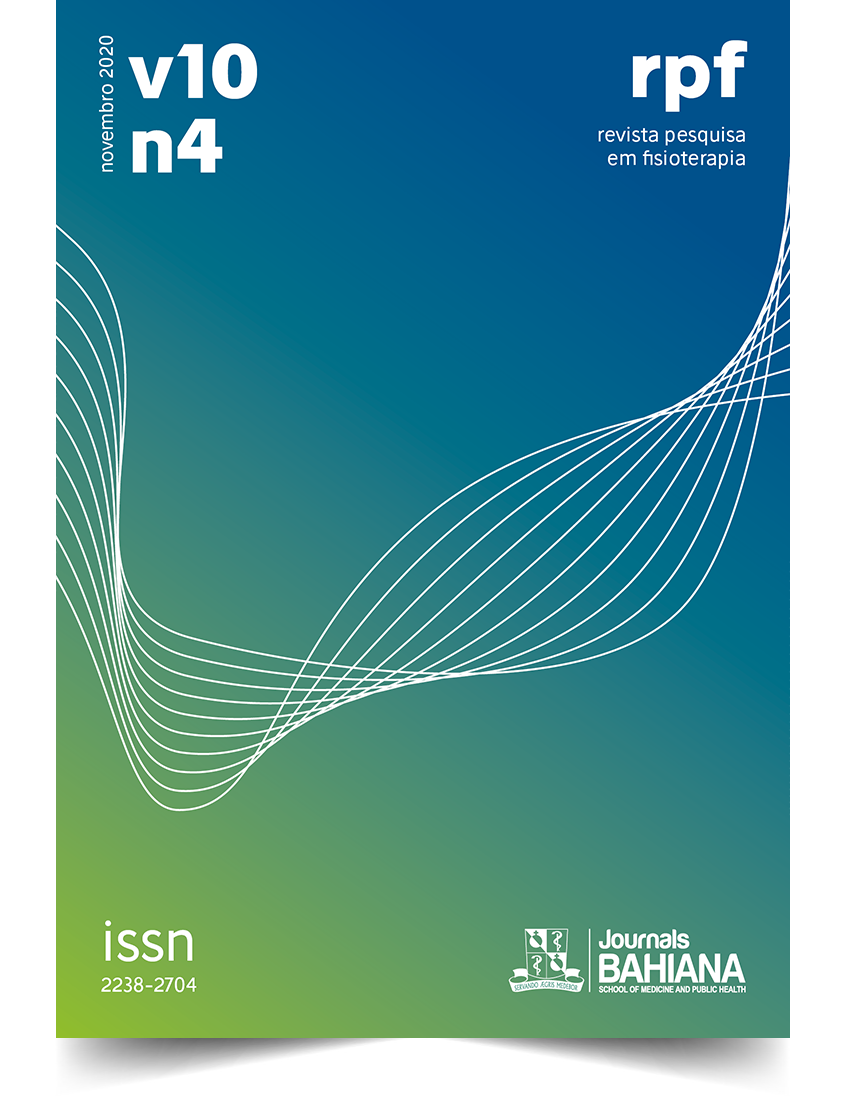Segurança e aplicação da plataforma vibratória em pacientes hospitalizados: uma revisão sistemática
DOI:
https://doi.org/10.17267/2238-2704rpf.v10i4.3251Palavras-chave:
Unidade de Terapia Intensiva. Hospitalização. Força Muscular.Resumo
INTRODUÇÃO: Um curto período de hospitalização, se acompanhado de imobilidade, pode ser capaz de promover declínio das funções musculoesqueléticas, gerando impacto negativo na funcionalidade e qualidade de vida. Com isso, tem-se tornado cada vez mais comum a adoção de estratégias terapêuticas como o uso da plataforma vibratória (PV). OBJETIVO: Sistematizar evidências sobre a funcionalidade e a segurança da aplicação da PV em pacientes adultos hospitalizados. MÉTODOS: Revisão sistemática, registrada na PROSPERO com código CRD42019119672. Desenvolvida nas bases: LILACS, SciELO, MedLine/PubMed, EBSCOhost e PEDro. Descritores e palavras-chave: “Whole body vibration”, “Intensive Care Units”, “hospitalization”, “muscle strenght”, e “functional capacity”. Incluídos estudos que analisaram os efeitos e a segurança da aplicação da PV em pacientes adultos hospitalizados. A qualidade metodológica foi avaliada através da escala Downs and Black. RESULTADOS: Incluídos 2 estudos, um ensaio clínico randomizado e outro estudo de intervenção controlado. A amostra variou entre 24 e 40 sujeitos, de ambos os sexos, média de idade 52±4 anos, com diagnóstico de DPOC e condições variadas. Houve uma melhora na distância percorrida no teste de caminhada de seis minutos e diminuição no tempo do teste de sentar e levantar, aumento dos níveis de irisina e melhora na qualidade de vida, em relação aos parâmetros dos sinais vitais não teve alterações significativas. O escore metodológico foi em média 16. CONCLUSÃO: Os resultados indicam que a PV parece ser viável e segura, podendo trazer efeitos favoráveis na funcionalidade para o tratamento em pacientes adultos hospitalizados, sendo uma alternativa para a reabilitação de forma precoce.



